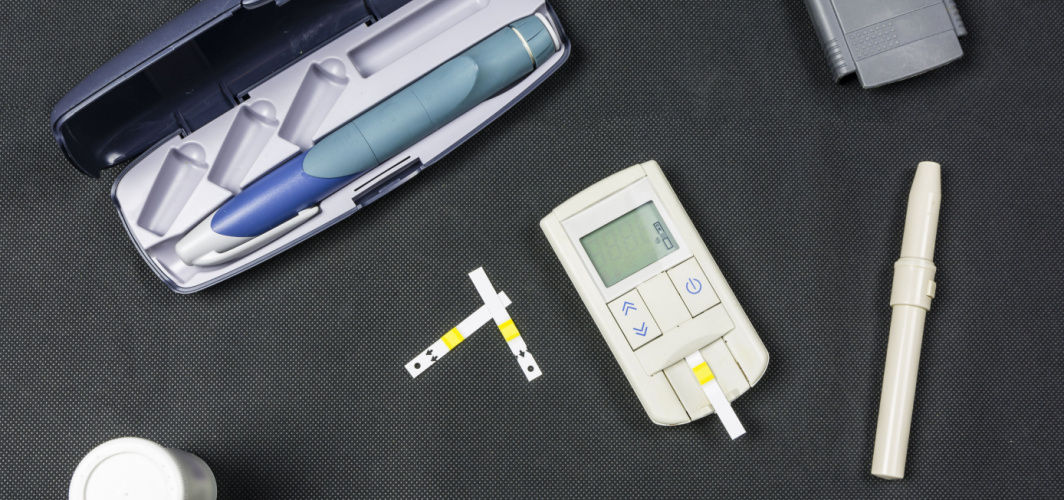Diabetes Management
Your 5 Favorite Sweets and Their Healthier Alternatives
2 min read
By Apollo 24|7, Published on - 23 October 2023
Share this article
0
0 like

The festive season is incomplete without sweets. However, for individuals with diabetes or those aiming for a healthier lifestyle, sugar-loaded sweets might not be the best choice. Hence, it is recommended that you opt for healthier alternatives to manage your blood sugar levels. In this blog, let’s explore a few sweets and their diabetes-friendly alternatives.
1. Whole Wheat Gulab Over Traditional Gulab Jamun
Gulab Jamun are deep-fried dumplings that are soaked in sugar syrup. Though they are a sweet delight, they are loaded with unhealthy fats and refined sugars. Hence, you can go for whole wheat gulab jamun which uses wheat flour. Bake the jamuns instead of frying them, and use sugar substitutes like stevia or erythritol in the syrup. The result is a healthier, diabetes-friendly option that retains the authentic flavour.
2. Baked Jalebi Over Regular Jalebi
This crispy and coiled sweet is prepared by deep-frying refined flour batter and soaking it in sugar syrup. It's a treat loved by many, but it's high in unhealthy carbohydrates. You can go for baked jalebis which uses whole wheat flour, minimal oil, and a sugar substitute.
3. Brown Rice Pudding Over Classic Rice Pudding (Brown Rice Kheer)
Made with white rice, full-fat milk, sugar, and raisins, classic rice pudding (kheer) is a comfort dessert but has a high glycemic index. You can replace white rice with brown rice, use skimmed milk or a milk substitute, and choose a sugar substitute. This alternative offers the same creamy goodness with a lower impact on blood sugar levels.
4. Cottage Cheese (Paneer) Rasgulla Over Regular Rasgulla
Instead of regular cheese, use low-fat paneer or skimmed milk and opt for a sugar substitute to make it protein-rich and low on carbs.
5. Sugar-Free Barfi
Barfi, a popular Indian sweet, is traditionally laden with sugar, condensed milk, and ghee. You can substitute sugar with a sugar-free sweetener. You can also use low-fat milk and reduce the ghee content. This transformation creates a barfi that's kinder to your blood sugar levels while still retaining the authentic taste.
Conclusion
You don't need to forgo your favourite sweets entirely if you have diabetes or want to pursue a healthier diet. By making smart ingredient substitutions, opting for whole grains, using sugar substitutes, and exploring alternative preparation methods, you can enjoy a diabetes-friendly version of your beloved treats.
Diabetes Management
Leave Comment
Recommended for you

Diabetes Management
Do You Have Frequent Infections? It Could Be A Sign Of Diabetes
Discover the connection between diabetes and infections. Learn about the latest guidelines, technologies, and lifestyle factors to stay infection-free. Take control of your health today!

Diabetes Management
What Do Diabetes Test Packages Include?
A glucose random test is a simple procedure that requires no overnight fasting or any special preparations. It simply involves pricking the finger to obtain a drop of blood, which is placed on a test strip of a glucometer for blood glucose reading. A sugar level of 140 mg/dL or below is generally considered normal. This test provides a quick assessment of blood sugar levels without the need for fasting or specific timing.

Diabetes Management
Can Regular Exercise Help Beat Gestational Diabetes?
Gestational diabetes can be managed successfully with early detection and lifestyle changes. Women diagnosed with gestational diabetes must eat a healthy diet, stay physically active, regularly monitor blood glucose levels and follow their medications to manage gestational diabetes. They can also consult a dietitian for a balanced meal plan. Medications like metformin may be prescribed by doctors if needed.
Subscribe
Sign up for our free Health Library Daily Newsletter
Get doctor-approved health tips, news, and more.
Visual Stories

8 Fruits That are Incredibly Healthy for Diabetes
Tap to continue exploring
Recommended for you

Diabetes Management
Do You Have Frequent Infections? It Could Be A Sign Of Diabetes
Discover the connection between diabetes and infections. Learn about the latest guidelines, technologies, and lifestyle factors to stay infection-free. Take control of your health today!

Diabetes Management
What Do Diabetes Test Packages Include?
A glucose random test is a simple procedure that requires no overnight fasting or any special preparations. It simply involves pricking the finger to obtain a drop of blood, which is placed on a test strip of a glucometer for blood glucose reading. A sugar level of 140 mg/dL or below is generally considered normal. This test provides a quick assessment of blood sugar levels without the need for fasting or specific timing.

Diabetes Management
Can Regular Exercise Help Beat Gestational Diabetes?
Gestational diabetes can be managed successfully with early detection and lifestyle changes. Women diagnosed with gestational diabetes must eat a healthy diet, stay physically active, regularly monitor blood glucose levels and follow their medications to manage gestational diabetes. They can also consult a dietitian for a balanced meal plan. Medications like metformin may be prescribed by doctors if needed.